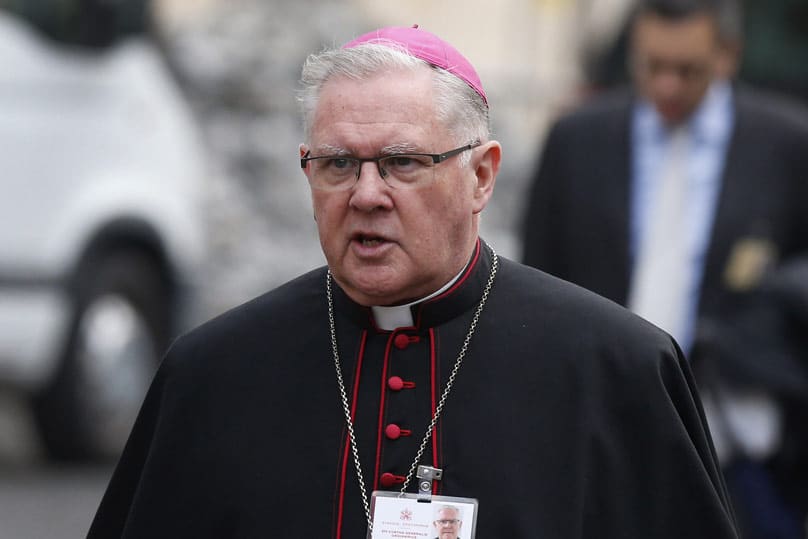
Leaders of the Australian Catholic Bishops Conference have been left in no doubt that the Vatican is watching the situation of the Church in Australia very closely.
Archbishop Mark Coleridge returned from a flying visit to Rome last week following an extraordinary meeting.
The key issues in the 2.5 hour meeting included the Royal Commission, the current debate over marriage and a range of threats to fundamental religious freedoms and human rights in Australia.
“The Catholic Church is facing the greatest crisis it has ever faced in the history of this relatively young country,” Archbishop Coleridge told the The Catholic Weekly.
“It was an extraordinary meeting in extraordinary circumstances.”
He described the meeting as “facing matters of urgency – both for [the Vatican’s] sake and for ours”.
“It wasn’t just about ‘courtly niceties’, there were real issues of substance to discuss.”
Representing the Church in Australia were Archbishop Denis Hart of Melbourne, President of the ACBC, Archbishop Coleridge of Brisbane (ACBC vice President) and Justice Neville Owen of the Church’s Truth Justice and Healing Council.
The Rome side of the meeting reads like a who’s-who of the Vatican’s most important dicasteries and personalities, including Secretary of State Cardinal Pietro Parolin, the Secretary for Relations with States, Archbishop Paul Gallagher (also a former Nuncio to Australia), the Prefect of the Congregation for Bishops, Cardinal Marc Ouellet and the Secretary for the Congregation for the Doctrine of the Faith, Archbishop Giacomo Morandi.
“Everyone was aware of the gravity and the complexity of the situation we’re facing here in Australia,” he said.
Archbishop Coleridge speaks about the future of the Church in Australia at a recent pastoral planning conference
While meetings between national groups of bishops and Vatican officials, usually called ad limina visits, occur every several years, the meeting came following an invitation from the Secretary of State earlier this year.
One thing to emerge from the encounter was that, clearly, new modes of partnership between the Church in Australia and the Vatican are needed, he said.
“We talked about that a lot, but there’s no detail – it’s still a work in progress,” he said.
“More contact [between the Vatican and the Church in Australia] is needed. What we need is a new kind of interaction – but the shape of that is unclear,” he said.
The subject of the seal of confession which the Royal Commission has suggested should be broken in cases where an individual confesses to a priest the sin of sexual abuse of minors, did come up at the meeting but only in passing as one of numerous issues to be covered, he said.
The presence of Archbishop Gallagher was a benefit because of the former Nuncio’s knowledge and experience of the Church in Australia, Archbishop Coleridge said.
The bishops had decided to bring Justice Owen, a former judge of the Supreme Court of Western Australia, not only because of his experience with the TJHC but his knowledge of the issues related to the current Royal Commission, he said.
While the Royal Commission has proved “a mighty catalyst” the meeting gave Archbishops Hart and Coleridge and Justice Owen an opportunity to brief Vatican officials face to face on the situation and to listen to their advice.
“It’s clear that in the wake of the Royal Commission one thing that is changing here is the configuration of the relationship between Church and State,” he said, “especially in relation to issues like religious freedom.”
He said Vatican officials were watching the situation in the context of similar issues emerging around the globe and the implications for the universal Church.
Meanwhile, suggestions raised by the Government of Northern Territory to remove almost all exemptions for Church organisations from anti-discrimination legislation in the Territory were “cause for great concern,” Archbishop Coleridge told The Catholic Weekly.
Because the suggested changes could do away with long-recognised and fundamental human rights such as the right to religious freedom “we really have to put this issue to bed,” he said.
The NT discussion paper issued by the Territory’s Attorney General “shows human rights in Australia are really much more fragile that they appear to be – particularly religious freedom rights,” the Archbishop said.
